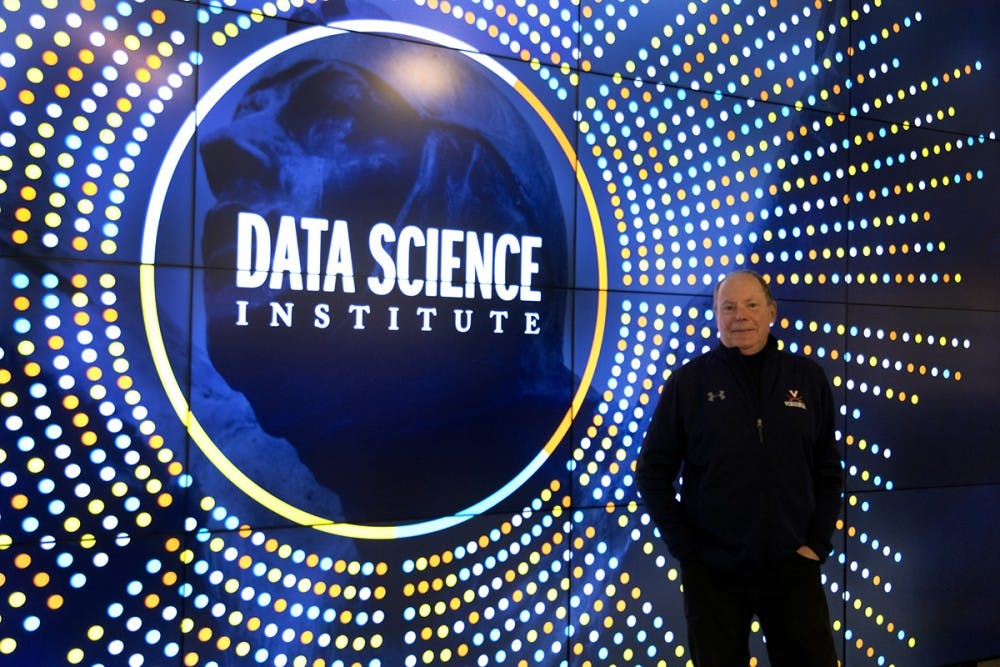The State Council of Higher Education for Virginia officially approved the creation of the University’s School of Data Science last week, allowing the project to go forward with planning and faculty hiring. The school is planned to be located in the Emmet/Ivy corridor and will include the construction of a 70,000-square-foot academic building.
The University community celebrated the school’s official launch at an event Tuesday in Dell 1 that featured remarks from University Provost Elizabeth Magill and School of Data Science Dean Phil Bourne, introducing a school that Magill says “is naturally, instinctively, pervasively working across disciplines.”
The University announced in January that it would be establishing the nation’s first school of data science with a $120 million grant from Quantitative Foundation, which comprised the largest private donation in the University’s history.
The Quantitative Foundation is a private foundation with charitable status located in Charlottesville that was established in 2009. The Foundation previously donated $10 million in 2014 that went towards construction of the University’s Data Science Institute, which will be integrated into the School of Data Science.
The new School’s website states that their mission is to “further discovery, share knowledge, and make a positive impact on society through collaborative, open and responsible data science research and education.”
The School of Data Science is the 12th school that the University has established. “Data Science is inherently interdisciplinary,” University President Jim Ryan said in his speech at the event. “What got me so excited was that this would not be your typical school … This would be a ‘School Without Walls’, a school that is integrated across Grounds … The opportunity to be a leader in a new and burgeoning field and create a different kind of school, to my mind, is simply irresistible.”
Currently, students can receive a Masters in Science of Data Science from the School, however the program website includes plans to incorporate undergraduate and Ph.D. degrees in the future.
“The Ph.D. program will hopefully go into the University process and the state process by the end of the year,” Bourne said in an interview with The Cavalier Daily. “Early next year I hope we’ll put forward a certificate in Data Science at the undergraduate level, and then a minor and then a four year degree … The timetable is a function of how quickly we can do these things and get them approved and the pressure and demand from the University and the community for the need for these programs.”
Magill said that the School of Data Science master’s program has already made some achievements, such as partnering with a library, opening a data lab to share data across the institution and working with community organizations to use their expertise to advance causes for local and civic institutions.
“This is the definition of a different kind of school,” Magill added, saying that social responsibility in data science practices is one of the main focuses for the school, including environmental issues, the aging population and the role of democracy. “It really is going to change society, and that’s happening at a time when there is much to be done … We’re going to focus on areas … where we can make a difference, and we’re doing it in a way that is perhaps — to some degree — non-traditional.”







